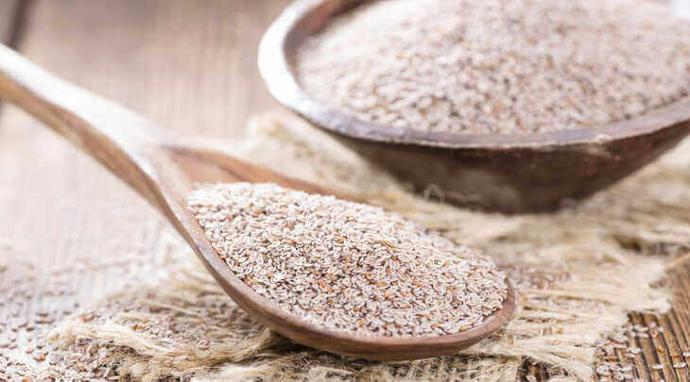CONTENTS
1. Psyllium? What is psyllium? ?
2. The benefits of psyllium.
3. How to use psyllium?
4. What to remember about psyllium?
1. Psyllium? What is psyllium?

Used by Egyptian doctors three thousand years ago, psyllium is now recognised by the World Health Organisation for its various benefits. This plant produces fruits in the form of capsules containing flat, ovoid seeds. There are two types of psyllium: blond and black. Black psyllium is native to the Middle East and the Mediterranean basin. Blond psyllium comes from India and Iran.
2. The benefits of psyllium.
Psyllium seeds, whether black or blond, belong to the category of so-called mass laxatives, which are made up of fibres with the property of absorbing several times their weight in water. Researchers agree that the plant owes its properties to the mucilage (plant substances inside the plant that swell on contact with water and take on a viscous to sticky consistency) it possesses.
Constipation
The mucilaginous substances contained in the plant are said to absorb water from food. In the intestines, they then form a "gel" which increases the weight of the stools, improves their consistency and accelerates their transit.
Cardiovascular diseases
In 2005, analysts concluded that fibre supplementation helped to reduce blood pressure. Two years later, a clinical trial showed that a diet containing 12.5g of psyllium per day for 6 months significantly reduced blood pressure in overweight and hypertensive individuals.1
Diabetes
By altering the texture and viscosity of food in the gut, psyllium is thought to lower the glycaemic index of the meal. Researchers have found that the plant helps to normalise the level of lipids in the blood, but also to lower blood sugar levels. The Commission E (Commission E is a German advisory board) recognises the use of psyllium in cases of constipation and in situations where the intestinal transit needs to be improved.
It also approves its use for the treatment of diarrhoea. Commission E and ESCOP recognise the use of black psyllium seeds for treating chronic constipation and irritable bowel syndrome.
Constipation, diarrhoea, inflammatory bowel diseases.
All of the uses below are also approved by the World Health Organization, which does not distinguish between types of psyllium. In addition, it adds duodenal ulcer and diverticulitis to the list of diseases that can benefit from the effects of psyllium.
High cholesterol, blood sugar and coronary heart disease.
ESCOP recognises the use of blond psyllium to reduce blood cholesterol levels. The WHO adds to these effects, the reduction of blood sugar after a meal and the prevention of coronary heart disease.
3. How to use psyllium?
Now that you know the great health properties of psyllium, you should know that the plant is also a valuable ally in the kitchen! Often used in gluten-free recipes, psyllium is an ingredient that can be used to make bread, muffins, chocolate cake, crackers, etc.
The plant is also a real ally for people who are on a diet or who watch their diet. Indeed, taken before a meal (in a glass of water for example), psyllium provides a slight satiety effect.
4. What to remember about psyllium?
Like many plants, psyllium is said to have many qualities. Approved by many researchers and recognised organisations, the plant could bring well-being, but be careful, overuse can be dangerous for your health.
References
1. Different effect of psyllium and guar dietary supplementation on blood pressure control in hypertensive overweight patients: a six-month, randomized clinical trial - PubMed (nih.gov) )
